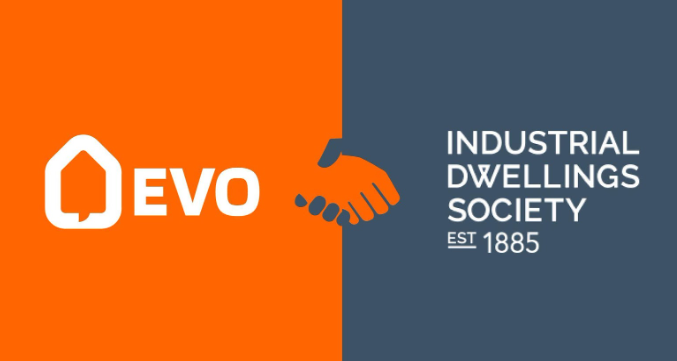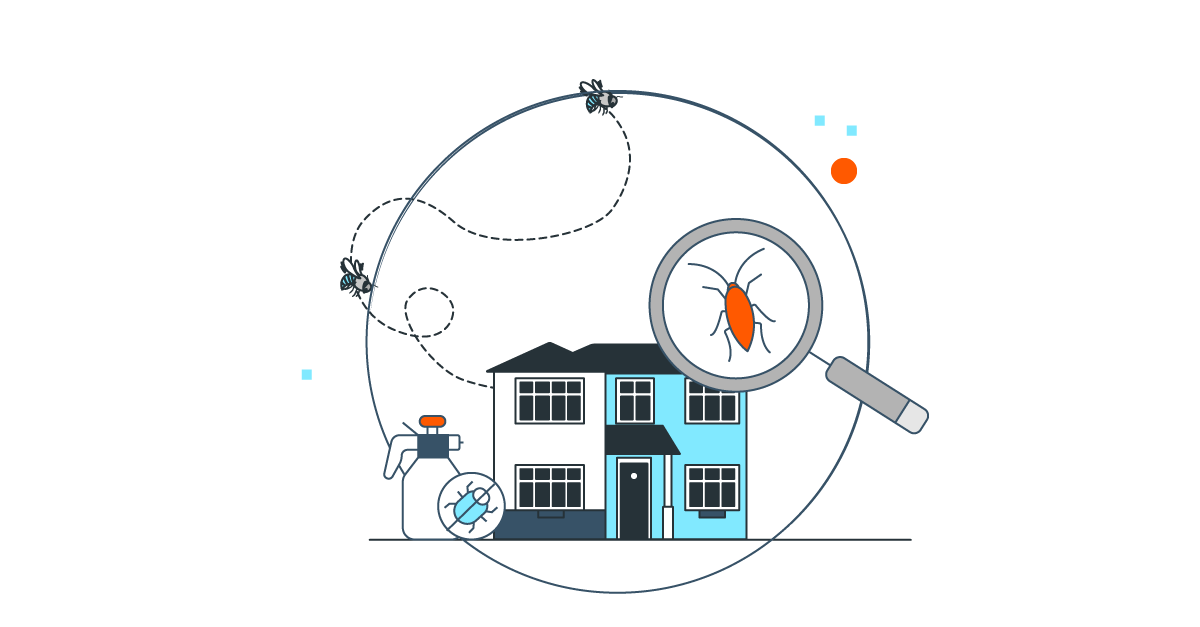
|
Highlights: |
|
Having a pest problem in your properties is unpleasant for your residents and can spread diseases.
This guide helps landlords understand who is responsible for dealing with pests in rented properties and what action they need to take to prevent and get rid of an infestation.
Who Is Responsible for Pest Control in Rented Properties?
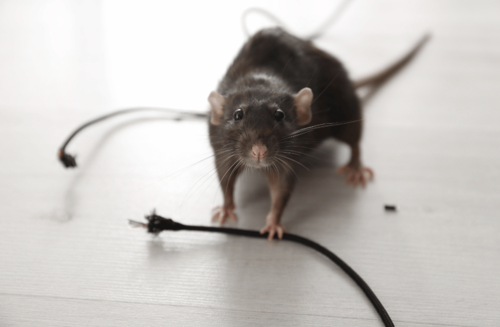
Who is responsible for pest control varies depending on three main factors:
-
Your tenancy agreement: Your tenancy agreement should clearly state whether it is you or your tenant who is responsible for pest control.
-
Human habitation law: Under the Housing Health and Safety Rating System (HHSRS), landlords must ensure that their rental accommodation is fit for human habitation. This means that even if your tenancy contract states that tenants need to deal with pests, it is ultimately the landlord’s responsibility.
-
Cleanliness and hygiene: Tenants are usually responsible for cleanliness and hygiene in a property - factors which often lead to a pest problem if overlooked.
The three factors above mean that both the landlord and tenant usually have some degree of responsibility over pest control.
In most cases:
-
If the problem is with the building itself, it is more likely to be the landlord’s responsibility.
-
If the problem is with the behaviour of the occupants, it is more likely to be the tenant’s responsibility.
⚠️Get It Dealt With |
|
As a landlord it’s usually a good idea to deal with a pest infestation on behalf of residents as soon as possible. Leaving it to tenants could lead to delays or half-measures that allow the problem to get worse and cause serious damage to their health or your property. Dealing with it yourself also avoids any disagreements between you and the tenant. If the tenant’s behaviour is causing the infestation (for example, they are not disposing of food waste correctly), explain the importance of keeping the property clean and tidy. |
What is a Landlord Responsible For?
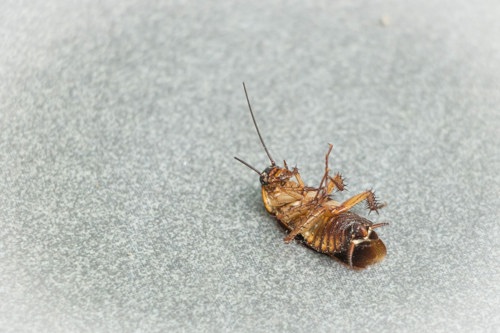
Landlords are responsible for the property’s structure. This means if any defect in the property caused the infestation, the landlord must fix it and get rid of the pests.
A good example of this is a hole in the building that is letting pests in. Other situations where the landlord is responsible for removing pests include:
🐀 If the pests were already there when the tenant moved in—this is the law for furnished properties, but is likely to be applicable to unfurnished ones too.
🐀 The landlord has previously used pest control measures that ultimately didn’t work.
🐀 If the tenancy agreement says that the landlord will deal with all pest problems.
🐀 If your rented property is in an area with a high level of seasonally returning pests—for
example, wasps—then you must have a contract in place to deal with them.
🐀 If your property has an infestation that is putting public health at risk it is your responsibility to deal with that issue. For example, if you have rats that have spread to a neighbouring property you need to deal with both pest infestations.
What is a Tenant Responsible For?
Residents mustn’t do anything that could attract pests. This comes down to good home hygiene and waste management.
If they don’t do this, the landlord can ask them to deal with the pests themselves.
Residents are also responsible for:
🐀 Keeping their pets free from fleas or mites. If they don’t and the pests spread to the property, the resident must arrange for the property to be cleaned and for the pet to be de-flead.
🐀 Tenants must inform the landlord as soon as they know that pests are in the property, regardless of whose responsibility it is to get rid of them.
🐀 It’s a good idea for the tenant to send photos to the landlord as proof, and to show the scale of the problem.
Whoever is responsible for the infestation must pay for damage caused by the pests - for example, replacing chewed cables.
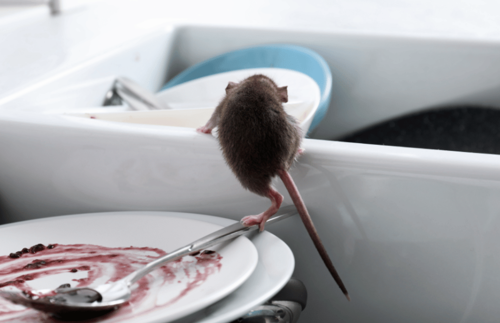
What Are Your Local Authority’s Responsibilities?
Local councils are subject to the Prevention of Damage by Pests Act 1949. This places a duty your local authority to control mice and rats. The Act grants enforcement powers to local authorities to compel landlords and occupiers to take action to keep land free from rats and mice.
If the responsible party refuses to remove pests in your property, the council will probably issue an enforcement notice. They will arrange for the infestation to be dealt with and the responsible party will be legally required to pay all costs for it and an administration fee.
Local authorities can help you if pests come from elsewhere, like neighbouring properties or sewers.
What Happens If There Is a Dispute?
If you and your tenant disagree on who is responsible for dealing with a pest infestation, you should call your council’s environmental health department. They will be able to tell you how the pest got in or what attracted them.
What Are the Penalties?
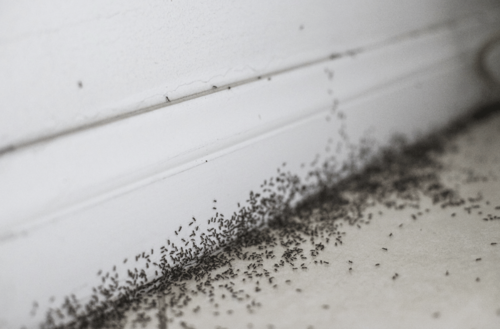
Under the Housing Act 2004, if an infestation is found to be the landlord’s responsibility they must take steps to remove it as soon as is reasonably possible.
If they don’t, the tenant can report them to the local council, who will serve them with an enforcement notice.
If a landlord is ordered by the council to deal with a pest infestation and refuses, they’ll receive a hefty fine. If a rented property doesn’t meet the minimum living standard, the council can order the landlord to close it until the issue is resolved.
Common Pest Infestation Causes
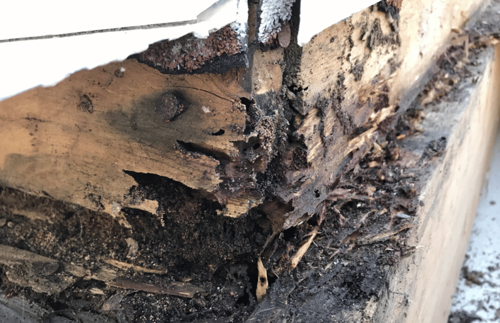
The three most common causes of pest infestations are:
-
Holes in external walls: Houses are warm, sheltered and contain food, so many pests love to move in! Any hole in the property is a way for them to do this.
-
Leaking pipes: These lead to damp conditions, which many insects love.
-
Poor waste disposal practices: Food or waste not being disposed of correctly can attract rodents and flies.
Steps to Protect Your Property from a Pest Infestation

✔️ Check for signs of pests regularly during each inspection and before each new tenancy.
Look out for:
-
Droppings
-
Footprints
-
Holes in floorboards, doors and skirting
-
Nests
-
Bad smells
-
Strange noises
✔️ Ensure you check the loft and the cellar
✔️ Check all pipework and plumbing
✔️ Make sure any holes in the property are fixed promptly
✔️ Make it clear who is responsible for different aspects of pest control in your tenancy agreement
✔️ Explain the importance of household hygiene and waste management to your tenants
✔️ Deal with infestations as quickly as possible
What to Do If Your Property Has a Pest Infestation

If one of your properties has a pest infestation then you should take action as soon as possible. You have three options, depending on the severity of the problem: do it yourself, contact your local council, or call a private pest controller.
Do It Yourself
This may be a good idea if you have a small-scale issue to deal with.
Dealing with pests yourself is inexpensive and means you don’t have to wait for someone to visit your property.
But there are a few downsides:
👎 You might not succeed immediately, meaning that the tenant has to live with the problem for longer.
👎 It takes time and effort. You might struggle to fit it in amongst other urgent tasks.
👎 Some pests require specialists - for example, you cannot get rid of bed bugs yourself.
There are also government guidelines on getting rid of pests yourself. It’s imperative to read the guidance before you try removing pests yourself.
⚠️Health and Safety Alert |
| Using poisons and hazardous equipment for pest control could be dangerous for the occupants—especially if they have children or pets. We recommend contacting a pest control expert if you need to use these kinds of methods. |
Call Private Pest Control Services
In most situations, it’s best to hire professional pest controllers. They will deal with the problem quickly, safely and effectively.
They may also offer a future proofing service to keep the property pest-free in future.
Professional pest controllers will provide excellent customer service, keeping you and your tenants happy.
The only downside is that they can sometimes be expensive.
Call the Council
Many councils don’t have to provide pest control to private landlords. In fact, some councils only provide pest services if the problem will cause health issues to other residents.
Therefore, you should only call your council if there is a complication in dealing with your infestation.
This could include:
✔️ The source of the infestation is from outside your property
✔️ You and the tenant disagree on whose responsibility it is to deal with a pest problem
✔️ Your tenant won’t let you or a pest controller in to remove pests
Councils sometimes provide pest controllers. However, they often only provide a limited service. For example:
👎 No service during evenings and weekends
👎 They may only treat certain pest problems
👎 You may have to pay in advance
👎 No emergency service
👎 You may be put on a waiting list
Unless you know that your council provides a good service, you are better off calling a private pest control company.
Empower Residents to Report Pests
One of the best ways for housing associations to deal with pests in their properties is to empower residents to report infestations themselves.
That’s where EVO comes in. Our digital platform includes a mobile phone app that enables residents to report repairs and maintenance issues at the touch of a button - this includes requesting pest controllers.
These requests are instantly sent to the next available, suitably qualified tradesperson. The resident can choose a time slot that suits them and the tradesperson is sent all of the information they need to get the job done - including:
✅Images and videos of the problem
✅Details of the property
✅A detailed history of jobs carried out there
Get in touch for more information on how EVO can help you provide quality accommodation and a great tenant experience.
PHOTO BY EVO
